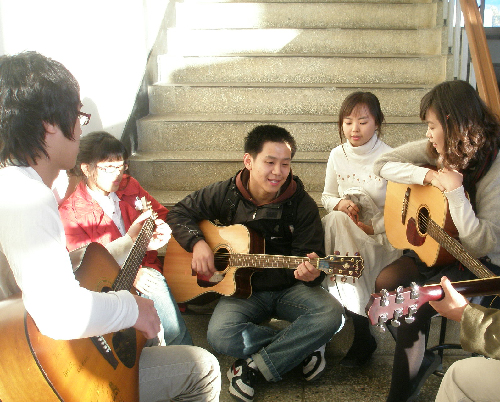Jumping Into Gender Diversity
By Ki Byung-su, Student Editor
Rhy Seun g-hyi, Tribune Reporter
The Bank of Korea recently declared that it put the face of Shin Saim-dang on the new banknote that will be published in 2009. She has been considered as the model of a wise mother and good wife for four centuries in Korea. Many women, including feminist activists, have opposed the decision: It will reinforce the notion of gender stereotypes in our society despite recent progress in promoting gender diversity.
In fact, we can see recently that new models like ‘Alpha girls’ and ‘King Kong girls’ have gone beyond gender-based stereotypes and cross/metro-sexual icons in a variety of media. Those situations probably mean the boundaries of traditional gender roles have been collapsing in Korea. In this issue, Chonnam Tribune identifies CNU students’ attitudes towards gender stereotypes and predicts attitudes towards gender diversity by conducting a survey of 201 students on October 22.
New Models Challenging to Gender Binarity 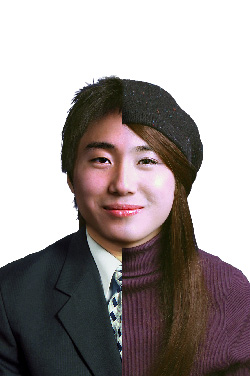 Alpha girls, a term first coined by Dan Kindlon in 2006, is a new role model of American girl who is an excellent academic achiever and leader in high school and has a lot of confidence in various fields. This concept comes into the spotlight especially in Korea and a cable TV is running a talk show ‘Pink Alpha’ that centers on the stories of young women called Alpha girls. King Kong girls mean those who fight against gender-based stereotypes: they are not meek as a lamb and lead their own lives without minding their looks.
Alpha girls, a term first coined by Dan Kindlon in 2006, is a new role model of American girl who is an excellent academic achiever and leader in high school and has a lot of confidence in various fields. This concept comes into the spotlight especially in Korea and a cable TV is running a talk show ‘Pink Alpha’ that centers on the stories of young women called Alpha girls. King Kong girls mean those who fight against gender-based stereotypes: they are not meek as a lamb and lead their own lives without minding their looks.
Meanwhile, couples where a woman is older than a man has become a new social trend. This new couple is easily found especially in very popular romantic TV dramas: ‘Gim Sam-sun’ and ‘Gim Sam-sik’ (in My name is Kim Sam-sun), ‘Na Seol-chil’ and ‘Yeon Ha-nam’ (in Very Famous Seven Princesses) and ‘Lim Mi-ja’ and ‘Ji Hyun-woo’ (in Old Miss Diary). They sometimes face difficulties because the ways of looking at the realities are different from each other as older women are wiser than younger men. This type of couple shows that women could play a leading role in a modern version of male-female relationship and men do not need to pretend to be strong any more.
Individuals’ Gender Does Not Matter in Choosing a Career
Most people point out that it is difficult for an alpha girl to be an alpha woman in our society because they have troubles carrying the fixed sex role in a male-dominated society, and King Kong girls also suffer from the differences with the other gender stereotyped women. However, a fixed stereotype for men and women has disappeared and individuals of both sexes have become more flexible to the point that they cover each other’s traditional roles. Let’s meet two CNU students who challenged gender-specific career choices and listen to their remarks on the gender issues like gender diversity and discrimination.

The first one is Kim Hyen-jong (Senior, College of Nursing). As occupational stereotyping is naturally forcing young people into jobs traditionally associated with their sex, he did not want to become a nurse at early age. However, his high school teacher recommended him to apply to the College of Nursing and get a stable job. When he was worried about what to do in the future, the teacher’s advice just aroused his curiosity of nursing because nursing has been regarded as a suitable job for a woman.
He said, “As people think women are delicate, that a nurse should be, nursing is considered to be a role suitable only for women. I am not delicate, but it is not an obstacle for me to care for my patients. After I started my practices as an intern nurse taking care of patients, I am sure that everyone can be a nurse, regardless of sex, like me, a male nurse. Individuals’ sex does not matter at all when it comes to choosing one’s jobs. In our society the boundary between men and women in stereotyped areas is collapsing.”
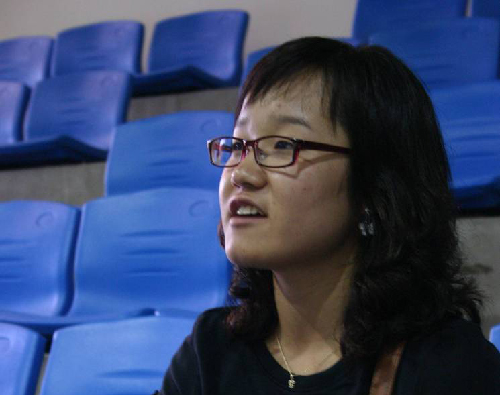
The other is Yoon Da-hye (Freshman, Dept. of Physical Education) . Since she started Western style archery when she was ten years old, she intended to quit it several times. Thanks to his father’s advice not to quit, she practiced very hard and then won many prizes in the games including local and the all-Korea archery tournaments. As time goes by, she started to feel attracted to archery. She said, “My friends told me that it was more difficult for women to succeed in sports than men, but I want to be a physical education teacher instructing archery at school in the future. Though female students should practice more than men to get good grades in college, there is no sexual discrimination in the sports world. If you still have a gender biased sex role stereotype, you should be free from it.”
Let's Talk! Gender Stereotypes
Changes in Men’s Fashion
Nowadays, it is no longer strange for men to put make up on their faces and wear accessories and women clothes among the young generation. Not all men are following metro-sexual or cross-sexual trends, but their interests in appearance, which were considered to be feminine in former days, are not gender-fixed anymore. We can easily find metro-sexual and cross-sexual icons among many Korean entertainers who have manicures, braid their hair and dress well. Then, what do CNU students think about it? The survey results showed that they have a positive attitude toward changes in men’s fashion.
To the question, “What do you think of men who wear accessories and care about how they look?” about 69% students answered ‘all right’, 25% answered ‘object only to wear accessories’. However, women showed a positive reaction to the men’s interests in appearance opposed the idea of their own boyfriends’ wearing makeup and earrings; to the question, “What do you think if your boyfriend wears accessories and cares about how he looks?”, 32% of women respondents answered ‘all right’, 50% of them answered ‘I understand but can’t accept him totally’, and 18% of women students answered ‘absolutely not’.
In addition, to the question asking who has more interest in appearance among men and women, both men and women students replied that women tend to care more about appearance than men. According to the results mentioned above, students’ notion of traditional gender stereotypes that men need not to care about their appearance seems to be breaking, but the extent of the change are not the same as men’s new outer style that is represented in media.
New Male-Female Relationships
At the question responded by 187 people, “When having a tasty dinner and going to a theatre with a sweetheart, who mostly pays on dates?” approximately 51% answered ‘a boyfriend’, 34% answered ’going Dutch’, and only six people answered ‘a girlfriend’. On the other hand, at the question asking who mainly makes a schedule for date or trip, only 19% answered ‘a boyfriend’, 5% answered ‘a girlfriend, and 77% answered ‘together’. At the question with answered by 128 women, ‘what is your ideal man type?’ 80% of women answered ‘a vigorous and strong-will man’, but only 20% answered ‘a sensitive and romantic man’. On the other hands, at the same question with 57 men, 54% of men answered ‘a vigorous man’, and 46% men answered ‘a sensitive man’.
These results show that men are more liable for finances and feel more responsible for finances, but this is changing. The notion of preferring a traditional stereotyped-man still remains in a man-woman relationship, but many men do not want this traditional type any more. In addition, both men and women bear financial expenses together and most couples tend to share their opinions in planning or making decisions.
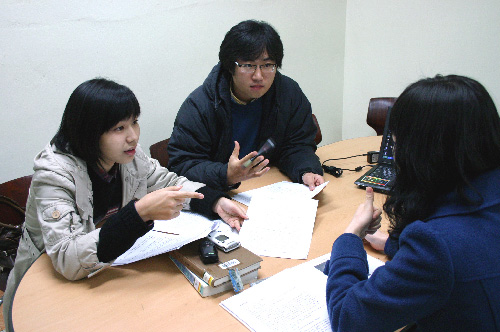
Gender-free Career Choices
2,021 male students are currently studying Nursing in 2006 (a 23% increase in comparison to 1996) in Korea according to the 2007 Statistical Yearbook of Nursing. To the question with 201 people responding whether working as a nurse is more suitable for women than men, approximately 48% of respondents answered ‘Yes’, but 52% answered ‘No’. In the case of men, they think that a nurse is not a suitable job for men; 65% answered ‘Yes’ but 35% answered ‘No’ to the question. On the other hand, many women think that a nurse is not only suitable for a woman but also for men; 38% answered ‘Yes’, but 62% answered ‘No’. In addition, at the question of ‘if your male friend wants to be a nurse, what would you say?’, both men and women (approximately 83%) showed agreement to the question. At the question of ‘if your female friend hopes to work as a security guard, a policewoman or a woman soldier, what would you say?’ most men and women also showed agreement to the question; approximately 81% answered ‘affirmative’.
Gender and Satisfaction with School Environment
To the questions with 201 CNU students responding, asking whether men and women feel satisfied with their gender, many CNU students said they are satisfied with their gender. On the other hand, men are more satisfied than women: 94% of men answered ‘satisfaction’, and 84% of women answered ‘satisfaction’. Women who are not satisfied with their gender said that gender stereotypes are negative towards women: Some said that they have experiences of being ruled out only because of their gender, and someone said she felt pressured about preening herself when going out, because women should pay more attention to her appearance, unlike men, and felt terrible during her menstrual period.
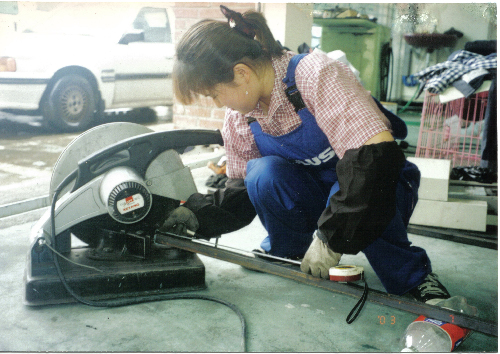
A student answered that she does not like her gender because of a typecast image that women are frail and even looked down as sexual objects. Men said that men should undertake the strenuous duties because of their gender: supporting family, physical labor, military service and exerting leadership and many more. These unequal roles lead to discrimination for women and absurd burdens for men.
In addition, CNU male students express that these unequal gender roles are also overwhelming loads for men during school life: physical labors, encouraging friends, escorting drunken friends home while drinking are mainly a man’s duty. CNU female students indicate these unequal gender roles: some people still keep their negative views toward women even now, do not trust women’s leadership and consider preparing dishes in school events as women’s innate duty.
Moving Beyond Gender Streotypes
Blessing in Disguise: Jump into Gender Diversity
Recently, the U.N. Convention on the Elimination of All Forms of Discrimination against Women found that Korea should make more of an effort to improve the societal treatment for women because Korean women were discriminated, despite recent progress promoting gender equality. As mentioned above, gender stereotypes have been reduced in a variety of fields such as men’s fashion, men-women relationships, career choices and cultural sectors. Nevertheless, many men and women are fettered by these stereotypes. It would probably take a long time for us to overcome these stereotypes which ca use conflicts and absurd discrimination between men and women.
However, fixed binary gender stereotypes have restrained men and women up to the present, its social enforcement has gradually disappeared in our society. We should also continue to make a great effort to avoid conventional gender binarity and jump into gender diversity. The collapse of stereotypes in ordinary areas is a process to achieve sex/gender equality, in other words, the process to abolish sexual/gender discrimination. The difference of each sex is natural and it makes the world interesting to live in. Although inconvenience and misunderstanding exist due to the differences between men and women, both of them should look at the bright side; the existence of each sex is a blessing in disguise for them.
